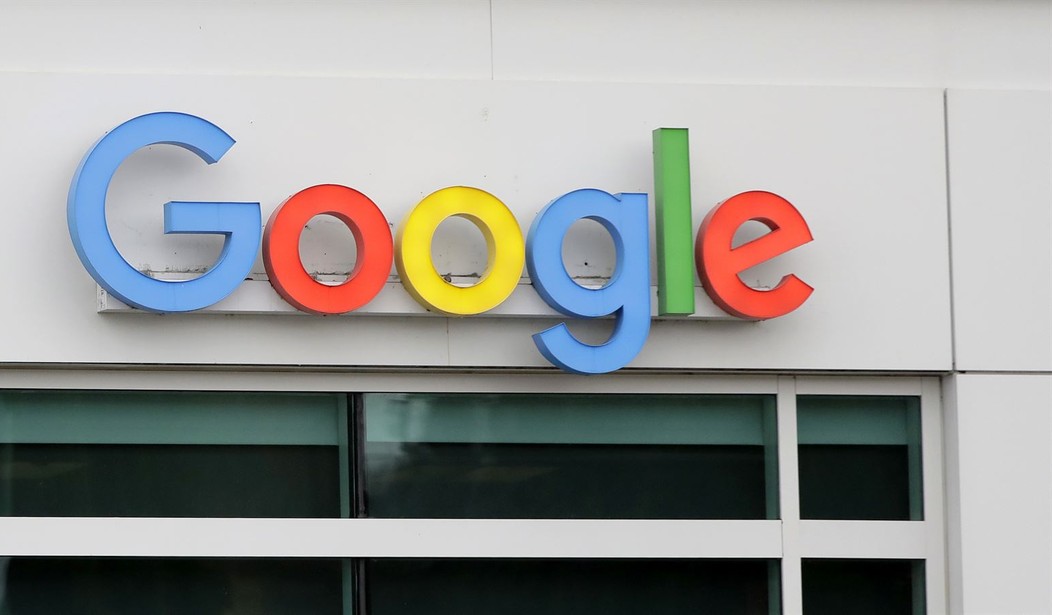“Don’t be evil” was explicit to Google’s motto and code of conduct for some 15 years. In 2015, Google updated its motto to “Do the right thing.” Today, Google, which owns YouTube, seems to have altered its motto to “Be evil” or “Do the wrong thing”—including censoring free speech of doctors, scientists, professors, politicians and journalists whose ideas differ from those of Google executives.
“This is the next step in the evolution of the Internet,” former Google CEO Eric Schmidt lauded Google’s purchase of YouTube for $1.65 billion in 2006. We now know Schmidt’s definition of Internet “progress” ostensibly centers around inducing users to think like him—by using YouTube to push assenting views and censor differing perspectives under the guise of legality or neutrality.
On April 27, YouTube deleted a video–that had accumulated over five million views—of a news conference hosted by Drs. Dan Erickson and Artin Massihi. The video contained no obscene content; no hate speech; and no copyright violations. The doctors operate a private urgent-care clinic in Bakersfield, California, and they courageously questioned the scientific accuracy of massive, elongated shutdowns extending to the young and healthy: "Do we need to still shelter in place? Our answer is emphatically no...We're actually seeing the patients. Dr. Fauci hasn't seen a patient for 20 years."
YouTube CEO Susan Wojcicki quickly took to CNN to defend the censorship, claiming: “anything that would go against World Health Organization recommendations would be a violation of our policy.” (YouTube’s policy was only recently changed to include such a stipulation.)
A quick search on YouTube after Wojcicki censored the Bakersfield doctors revealed at least 20 videos that purport to be “cure-alls” for all or nearly “all diseases”—including chanting a mantra 108 times and taking an herb. If these so-called health videos, which YouTube kept up, comply with WHO standards—it certainly makes you question WHO standards and YouTube’s compliance team.
Recommended
Last week, YouTube censored yet another video critical of Dr. Anthony Fauci that also contained snippets of Drs. Erickson and Massihi: Plandemic Documentary: The Hidden Agenda Behind Covid-19. YouTube deleted this video three times in 24 hours – even after it had accrued nearly 10 million views (across three channels).
Millions upon millions of people—including practicing doctors and celebrated researchers—disagree with YouTube’s arbitrary criteria. So why is YouTube afraid of their ideas? After all, YouTube purports to be a platform for ideas.
Clearly, YouTube is no longer operating as a platform—but a publisher. It’s fine if YouTube wants to be a publisher, but it’s not fair that YouTube simultaneously enjoys the legal privileges of a platform while censoring and editing content in the manner of a traditional publisher.
YouTube’s Unfair Advantage at Taxpayer Expense
Capricious discrimination is wrong. Unless you’re YouTube. Or Facebook. Or Twitter. Or Instagram.
Most Americans have never heard of Section 230 of the Communications Decency Act. Passed in 1996, professedly to keep the Internet clean of pornography, the clause gives platforms like YouTube, Facebook, Instagram, and Twitter special protection against libel that is not afforded to traditional publishers—including television, newspapers, magazines and book publishers.
Newspapers are liable for anything printed within their pages or websites—including external submissions—such as Letters to the Editor. In contrast, thanks to Section 230—YouTube, Facebook, Instagram and Twitter—because they claim to be platforms (podiums for all ideas versus an editor or promotor of content) have virtually zero liability for what is posted or deleted from their sites. Unfortunately, these so-called platforms increasingly abuse this privilege, acting more like publishers and less like platforms—censoring certain content and boosting other content based on political, scientific, cultural or religious perspective.
Not foreseeing the consequences, the Supreme Court tossed the anti-porn portion of Section 230 on First Amendment grounds, while retaining the special perks in Section 230 for online publishers. Result: the exact opposite of what legislators intended. Today’s Internet is a breeding ground for graphic sensuality and vitriol melded with the blatant censorship of conservative, libertarian, Judeo-Christian, and other ideas that don’t fit “the criteria.”
Harvard-educated Dr. Robert Epstein – former editor of Psychology Today magazine – has done copious research regarding Google Search, and its influence on elections. He uncovered the phenomenon known as “Search Engine Manipulation Effect.”
Up to 10.4 million and as low as 2.6 million votes were swayed in favor of Hillary Clinton in the 2016 Presidential election by Google Search results, Epstein’s research found. “Even though I lean left and was publicly supportive of Hillary Clinton, numbers that large tell you that there is no free and fair election anymore,” Epstein said of his findings – as reported by David A. Patten in the March 2020 issue of Newsmax magazine.
Google, Epstein says, took advantage of the fact that its search engine users assume its results for common queries like “Hillary email scandal” or “best Democratic candidate” are neutral and unbiased. In 2016, the results for such searches pushed results that overtly favored Hillary Clinton and liberal ideas.
Epstein further found that Google “blacklists” right-leaning sites, forcing them outside natural search results—in favor of left-leaning news sources. “It is astonishing that Breitbart and some similar websites are not more present [in Google Search results], given the enormous traffic some of these websites get, Breitbart especially,” Epstein told Los Angeles Times. Yahoo and Bing results were found to be considerably more impartial than Google—another indication that Google’s search results favor agenda over accuracy.
Predictably, Google calls Epstein’s research the flawed work of an amateur. But Google stands to lose its righteous “Don’t be evil” public image—and significant ad revenue—if its worldwide users wake up to its active manipulation of search results, and therefore of election results.
Google’s influence on the world, post-COVID-19, extends beyond web censorship. Former Google CEO Eric Schmidt is being enlisted by New York Governor Andrew Cuomo to help “reimagine” New York’s economy. Using COVID-19 as an excuse, the liberal billionaire behind Google is being invited to tell New Yorkers how they may live for the foreseeable future. Which businesses may open, and how—with an emphasis on telemedicine, remote education and working from home.
Social distancing is rife with issues and also helps Democrats, politically-speaking. Democrats are pushing for voting from home because it’s more susceptible to influence and fraud. Telemedicine is useful in some cases, but threatens the integrity of patient-doctor relationships. Certainly, there are benefits to having people stay home for work or school, such as family bonding. However, forcing people to stay at home is essentially zookeeping for humans and second, there is no such thing as guaranteed safety, only choices between risks and benefits.
What We Can Do
Consider switching your default Internet search engine to DuckDuckGo, Yahoo or Bing due to Google’s censorship of free speech on its search engine and sites it owns—including YouTube.
Ultimately, preserving free speech is a bipartisan issue. Left, Right and in-between must come together in this cause—because, once even one small group loses free speech—we all do.
Texas Senator Ted Cruz has found bipartisan support (including from Sen. Elizabeth Warren) for dismantling the protection that platform-publishers like YouTube, Instagram, Facebook and Twitter gain from Section 230. Unfortunately, Cruz has struggled to find sufficient courageous allies. House Speaker Nancy Pelosi, for example, is a staunch promoter of perpetuating the perks afforded social media giants in Section 230. So, we must pressure our elected officials—especially Republicans—to challenge Section 230 protections for platforms.
“It is the Press which has corrupted our political morals - and it is to the Press we must look for the means of our political regeneration,” said Alexander Hamilton. Today’s Press is broader than the newspaper of Hamilton’s time. Today, all publishers—including online publishers like YouTube, Facebook and Twitter—constitute the Press and we must hold them to the highest standards. We must support good journalism and media outlets that do promote the truth with our clicks, subscriptions and shares.
Let’s also encourage listening to all perspectives—including those we despise or consider dangerous. For, what’s the point of protecting milk-toast, non-controversial statements that no one would care if one said (or not) anyway?
Use your voice to speak up and pressure your local and national government to promote free speech—and end the unfair monopoly of ideas currently held by Google and its subsidiaries.

























Join the conversation as a VIP Member